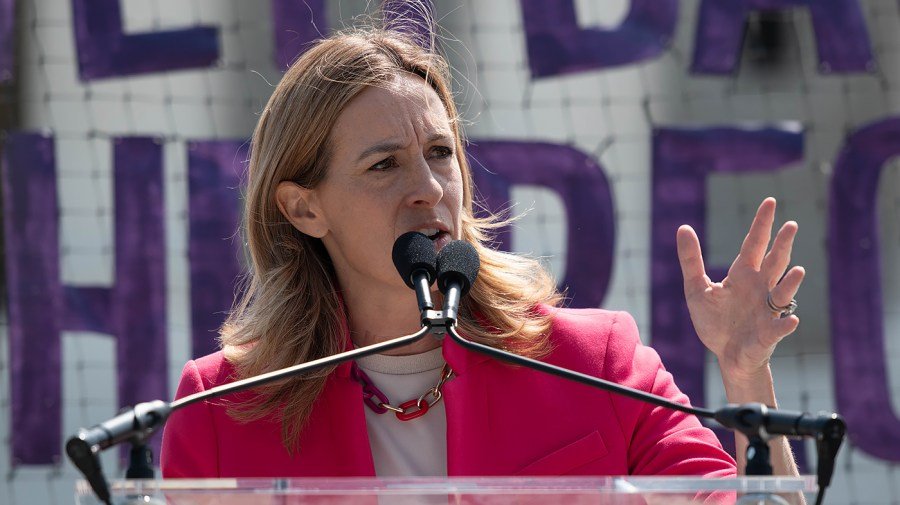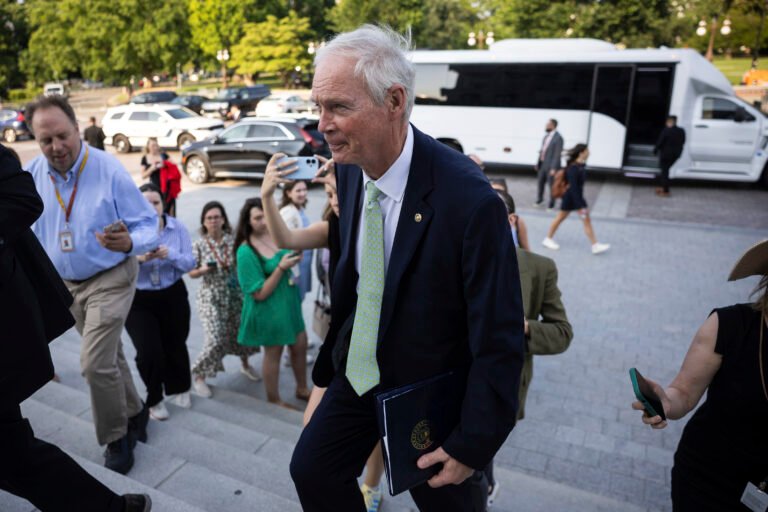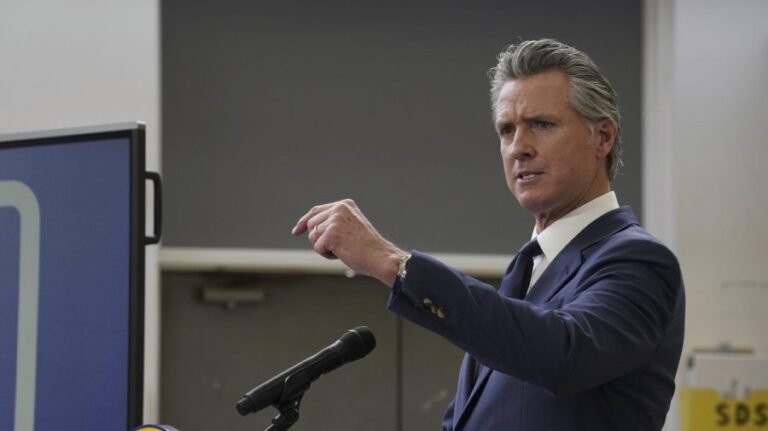
Rep. Mikie Sherrill (D-N.J.) has won the Democratic nomination for governor of New Jersey, coming out on top of a crowded field, according to Decision Desk HQ.
Sherrill defeated five other major candidates for the nomination in a hotly contested primary to succeed two-term Gov. Phil Murphy (D), who is term limited. She entered the primary on Tuesday as the favorite given her polling lead that she’s maintained in public and internal polls, including those from other candidates’ campaigns.
She also had the backing of most of the county parties in North Jersey, home to most of the state’s population. County endorsements aren’t quite as influential as they used to be with the state’s “county line” ballot system no longer in use, but they still carry some weight.
The primary was an early test of political power in New Jersey without the county line, which a federal judge struck down last year on the grounds that it gave county-endorsed candidates favorable positioning on the ballot. Jersey City Mayor Steve Fulop had railed against the county line and sat out county nominating conventions as he sought to advance a grassroots, outsider campaign.
Sherrill will face Republican Jack Ciattarelli, who was also the 2021 GOP nominee, in the general election.
Fulop was hoping to tap into antiestablishment sentiment seen in the state last year with the line going away and Sen. Andy Kim (D-N.J.) managing to hold off New Jersey first lady Tammy Murphy in the Democratic primary for Senate, running a similar grassroots campaign.
As part of his wider efforts to reshape the state’s politics, he backed a range of progressive candidates for state Assembly, including some incumbents and some primary challengers. He laid out extensive policy proposals and slammed Sherrill, accusing her positions of being vague and too moderate.
But Fulop ultimately fell short to Sherrill, a fourth-term House member.
Despite Sherrill’s polling advantage, multiple candidates seemed like they could pull off an upset win. Most of the candidates in the race placed second in at least one poll and had paths to victory in what was expected to be a divided primary electorate.
The candidates all brought extensive resumes and agreed on many issues, pushing to lower the cost of living, increase affordable housing and invest in renewable energy and education. But they tried to stand out in various ways to gain the advantage.
Newark Mayor Ras Baraka ran as a progressive and received widespread attention for his arrest at a U.S. Immigration and Customs Enforcement facility last month while he was trying to observe conditions there. The charges against him were eventually dropped.
Rep. Josh Gottheimer (D-N.J.) focused much of his campaign on vows to lower costs and taxes in what is one of the most expensive states to live in the country. New Jersey Education Association President Sean Spiller touted his support from teachers, having led the large teachers union for a few years. Former New Jersey Senate President Steve Sweeney, the only candidate from South Jersey, emphasized his longtime experience in state politics and his institutional knowledge to get things done.
Sherrill focused on her “affordability agenda,” calling for incentives for developing new housing, streamlining the approval process for energy projects and expanding tax credits.
She will face a challenge from Ciattarelli as he hopes to build on his narrow loss four years ago. He surprised many by only losing by 3 points to Murphy, and Republicans made significant improvements in the 2024 election in November in the Garden State.
But Sherrill will start out as the favorite in the still left-leaning state. A trend that may benefit her is that New Jersey has elected a governor from the opposite party of the president in each election for decades except 2021.
If elected, Sherrill would be New Jersey’s second female governor.

